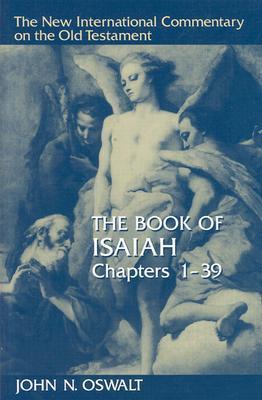TL;DR
John N. Oswalt's commentary on Isaiah, chapters 1-39, offers an in-depth theological and literary exploration of one of the Old Testament's key texts, blending historical context and interpretation for contemporary understanding.
What is The Book of Isaiah, Chapters 1-39 about
In "The Book of Isaiah, Chapters 1-39," John N. Oswalt presents a comprehensive analysis of the first half of the Book of Isaiah, addressing its historical, theological, and literary dimensions. Oswalt explores the background and unity of the text, defending the authorship of the eighth-century prophet Isaiah against scholarly divisions that suggest multiple authors across different historical contexts. Through a meticulous translation of the Hebrew text, he elucidates the original meaning and significance of Isaiah’s messages, emphasizing themes of divine judgment and salvation. This commentary serves as an essential resource for pastors, scholars, and students, fostering a deeper understanding of Isaiah's role in biblical literature and its relevance for modern readers.
The Book of Isaiah, Chapters 1-39 8 Key Takeaways
Thematic Unity
Oswalt argues for the thematic and compositional unity of Isaiah, asserting that the entire book can be attributed to the eighth-century prophet Isaiah, countering the three-division theory.
Historical Context
The commentary places Isaiah's messages within the historical context of the eighth century B.C., addressing the sociopolitical issues faced by Israel during that time.
God as Judge and Savior
A key message of Isaiah is that God is both the judge and the savior, with His judgments revealing what is broken and His promises offering restoration.
Philological Expertise
Oswalt’s analysis includes detailed philological insights, providing readers with a rich understanding of the Hebrew text and its nuances.
Theological Implications
The text discusses crucial theological themes, such as the nature of God’s covenant with Israel and the implications of disobedience and repentance.
Contemporary Relevance
Oswalt connects Isaiah's ancient messages to contemporary faith issues, demonstrating the timeless nature of its teachings.
Interpretative Challenges
The commentary addresses various interpretative challenges and scholarly debates related to the text, facilitating a deeper discussion on understanding Isaiah.
Bibliographic Resources
Oswalt provides a select bibliography, guiding readers towards further research and study into the Book of Isaiah.
The Book of Isaiah, Chapters 1-39 Videos
Book of Isaiah Summary: A Complete Animated Overview (Part 1)
Top The Book of Isaiah, Chapters 1-39 Quotes
- "God’s judgment reveals what is broken; His promise is to heal the brokenness."
- "Isaiah's vision speaks powerfully to the plight of humanity across time, calling for repentance and restoration."
- "In the tapestry of prophetic literature, Isaiah stands out as a voice declaring both the gravity of sin and the hope of redemption."
Who should read The Book of Isaiah, Chapters 1-39?
This book is ideal for theologians, biblical scholars, and students of the Old Testament who seek a robust academic and interpretative resource on Isaiah. Readers will gain valuable insights into the historical context, theological themes, and literary nuances of the text, enriching their understanding of its implications for faith today.
The Book of Isaiah, Chapters 1-39 Best Reviews
- "Oswalt’s commentary is a tour de force that blends academic rigor with pastoral sensitivity, making it an invaluable resource for understanding Isaiah's enduring message." - Theological Review
- "A profound exploration of Isaiah that demonstrates Oswalt's expertise and ability to bring ancient texts into contemporary dialogue." - Biblical Studies Journal
People also liked these summaries
The Book of Isaiah, Chapters 1-39 FAQs
What is the main message of Isaiah?
The main message of Isaiah is that God is both the judge and the savior, emphasizing that His judgments reveal brokenness, while His promises offer healing and restoration.
Who wrote the Book of Isaiah?
Traditionally, Isaiah is believed to have written the entire scroll, though some scholarship suggests that chapters 40-66 may have been composed by his disciples after his time.
What are the key themes in the first 39 chapters of Isaiah?
Key themes include divine judgment against wicked nations, the call for repentance among Israel, and the promise of eventual restoration and hope for the future.
